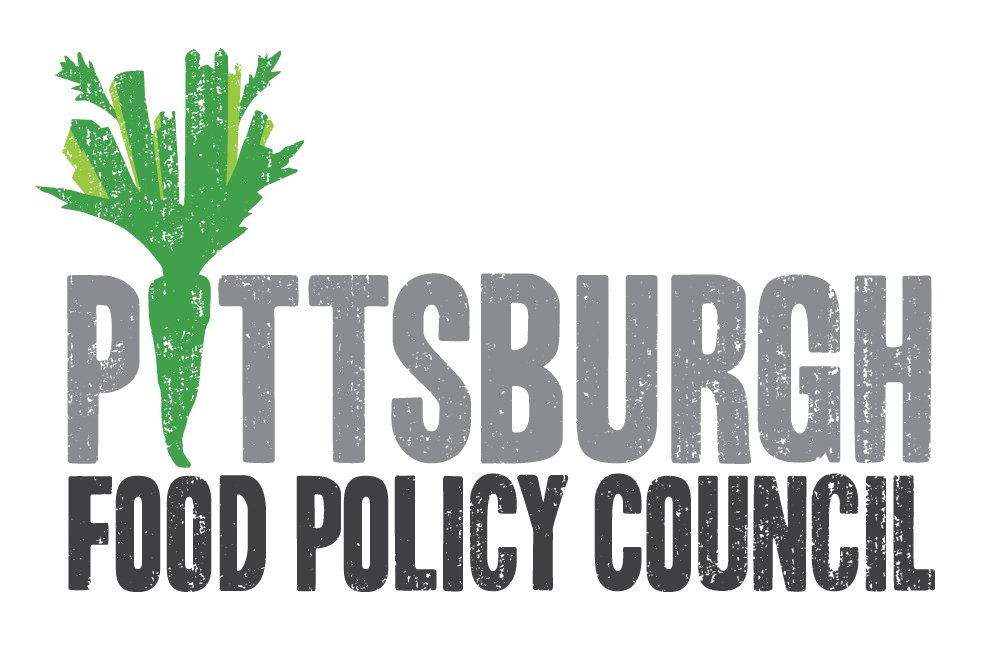PFPC Submits Comments to the EPA
On June 30th, the PFPC submitted comments to the EPA regarding its proposed revisions to the Lead and Copper Rule, a regulation that controls the levels of lead and copper in drinking water. The effort was spearheaded by Steering Committee member Neashia Johnson, program coordinator at the Hill District Consensus Group and member of the Lead Safe Allegheny coalition.
The PFPC recognizes that access to clean drinking water is essential to nutrition security and asks the EPA to uphold higher lead and copper safety standards. Read the full comments below:
The Environmental Protection Agency (EPA) has shared the following proposed revisions to the Lead and Copper Rule, effective June 17, 2021:
Community water systems will have to test for lead in drinking water in elementary schools and child care facilities that they serve and report results in a timely manner; Lead service line (LSL) sampling must be from a lead pipe rather than internal plumbing, without flushing or cleaning lines prior to sampling; Establishes a new lead level threshold of 10 ppb for community water systems, requiring systems that exceed the threshold to start corrosion control and lead service line replacement programs; Community water systems will be required to fully replace at least 3 percent of lead service lines each year when 10 percent of sampling results are above 15 ppb; Community water systems will not be able to do partial lead service line replacements, as that can lead to short-term spikes in lead levels; Community water systems will have to replace system-owned lines if a consumer decides to replace their personal lines; Community water systems are required to identify and make public lead service lines; Consumers with a known or potential lead service line will be notified and receive information about steps that they can take to reduce their exposure to lead in drinking water; If water samples exceed 15 ppb of lead, community water systems must notify occupants of the home within three days, so that steps to reduce lead exposure can be taken immediately. Notification of tap sample results under 15 ppb will occur within 30 days. If there is a systemwide action level exceedance, water systems will notify all customers within 24 hours and provide educational materials within 60 days. Water systems will also notify homeowners and building owners about opportunities to replace lead service lines, including information about financial assistance programs, if available, to help pay for replacing the customer-owned side of the line.
The Pittsburgh Food Policy Council would like to share the following comments on the Environmental Protection Agency (EPA)’s proposed revisions to the Lead and Copper Rule:
The Pittsburgh Food Policy Council’s Greater Pittsburgh Food Action Plan (GPFAP) has included the recommendation to, "work to ensure the right to clean air and water for all citizens," (Recommendation 5.4). Our comments are reflective of our Council’s collective support of legislation, initiatives, and programming that promote clean, accessible, publicly-owned water systems.
We believe that community water systems should test all active and inactive drinking outlets and facilities in elementary, middle, high, public and private secondary schools and childcare facilities. Schools and childcare facilities should not be allowed to opt-out of lead testing. Testing should be completed on a scheduled/routine basis, for instance, every year, and results should be published by the appropriate local or national regulatory agency, i.e. PWSA and/or EPA the following year. There is no safe level of lead exposure for children, according to the Centers for Disease Control and Prevention (CDC). Even in small amounts, lead can cause irreversible brain damage in children, learning disabilities, and impaired hearing. Given the higher vulnerability of children to the impacts of lead exposure, the EPA should identify a separate, and lower action level for public and private elementary, middle, high, and secondary schools and childcare facilities, for instance, 1-5 ppb.
If lead levels are exceeded, community water systems, schools, and childcare facilities should notify all families within 24 hours and provide educational materials within 30 days. Lead contamination in elementary, middle, high, public and private secondary schools and childcare facilities should be remediated immediately, including corrosion control, lead service line replacements, water filters, water fountain replacements, etc.
We recommend that the lead level threshold for community water systems should not exceed 5 ppb. Community water systems that exceed the threshold should be obligated to start corrosion control and lead service line replacement programs. Affected consumers should be notified within 24 hours, provided educational materials, lead mitigation tools (water filters/pitchers), and lead line replacements initiated within 30 days.
The EPA should ensure that national and state service line inventories are updated yearly. Existing records should be reviewed and updated yearly, with physical verifications from community water systems.
Requirements for lead service line replacements should be increased from 7 percent yearly; community water systems should be required to fully replace at least 5 percent of lead service lines each year on public and private property to ensure lead contaminated service lines are replaced by 2040. Federal and state funding should be set aside to accommodate lead service line replacements to prevent low-income consumers from footing the bill.
Our organization supports President Biden's overall goal of addressing the "hundreds of Flint's all across America," with needed infrastructure spending. However, current scientific understanding of the dangers of lead shows that the proposed action and trigger levels contained with the LCR revisions are inadequate and will not protect our most vulnerable community members. We respectfully, but forcefully, ask that you consider our comments in determining the final scope of the rule.
Sincerely,
Dawn Plummer Executive Director
